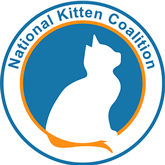M
Mandible (man-duh-buhl): The bone of the lower jaw
Mange: Any of several skin and ear conditions caused by a variety of mites
Mastitis (ma-stahy-tis): The inflammation of the mammary gland/s due to injury causing milk buildup in the gland/s (non-septic) or bacterial infection entering through the nipples, wounds or bloodstream (septic)
Maternal antibody: Antibody in a newborn animal which the newborn acquired through the placenta or colostrum (the first milk)
Maxilla (mak-sil-uh): The upper bone of the jaw
Meconium (mi-koh-nee-uhm): The first stool of a newborn that collects inside the fetus’ intestines
Melena (muh-lee-nuh): The discharge of black, tarry, bloody stools, usually resulting from a hemorrhage in the alimentary tract
Melanin (mel-uh-nin): The dark pigment in the cells of skin and hair
Microphthalmia (mai-krow-thal-mee-uh): Also known as microphthalmos, in which one or both eyes are abnormally small or missing
Micturition (mik-chuh-rish-uhn): The process of expelling urine from the body known as urinating
Milk Fever: This life-threatening condition, also called eclampsia, may occur 2-4 weeks after birth due to blood calcium loss during lactation or during the last weeks of pregnancy
Mycosis (mahy-koh-sis): The condition caused by a fungus such as ringworm, blastomycosis and histoplasmosis
Mydriasis (mi-drahy-uh-sis):The dilation (enlargement) of the pupil/s unrelated to the levels of light in the environment, which may occur from fear, drugs or health conditions such as glaucoma
N
Nasopharynx (ney-zoh-far-ingks):The upper part of the throat behind the nose, behind and above the soft palate (roof of the mouth) and just behind the nasal passages
Necropsy (nek-rop-see): The examination of an animal after death, an animal autopsy, to determine the cause of death or extent of disease
Nematode (nem-uh-tohd): An unsegmented worm of the phylum Nematoda, having an elongated, cylindrical body, such as a roundworm
Neonate (nee-uh-neyt): A kitten four weeks of age or younger who cannot eat solid food and must be stimulated to urinate and defecate (National Kitten Coalition’s definition).
Nephritis (nuh-frahy-tis): The inflammation of the kidney/s, some types which may be immunodeficiency virus caused by diseases such as feline leukemia virus, feline immunodeficiency virus and feline infectious peritonitis
Nictitating Membrane (nik-ti-tey-ting): A thin, retractable membrane, also called the third eyelid, that extends across the eye from the inner corner to protect the eye
Nystagmus (ni-stag-muhs): The congenital or acquired involuntary, rapid horizontal, vertical or circular eye movement, which may occur with inner ear problems

